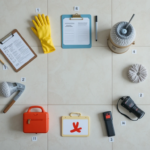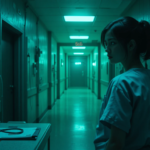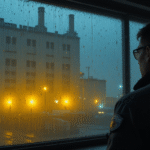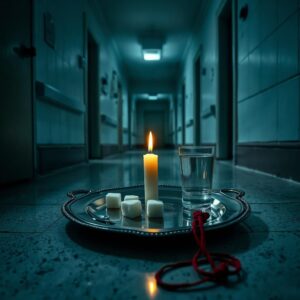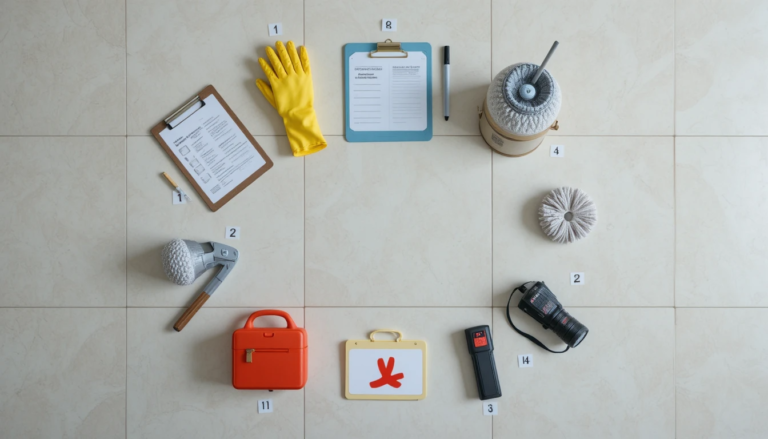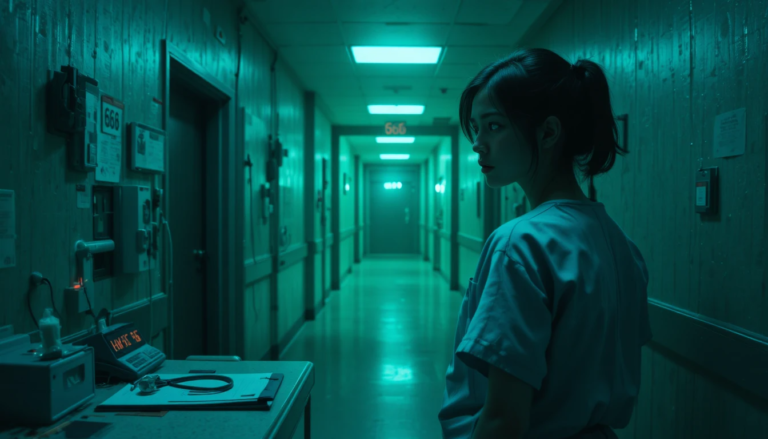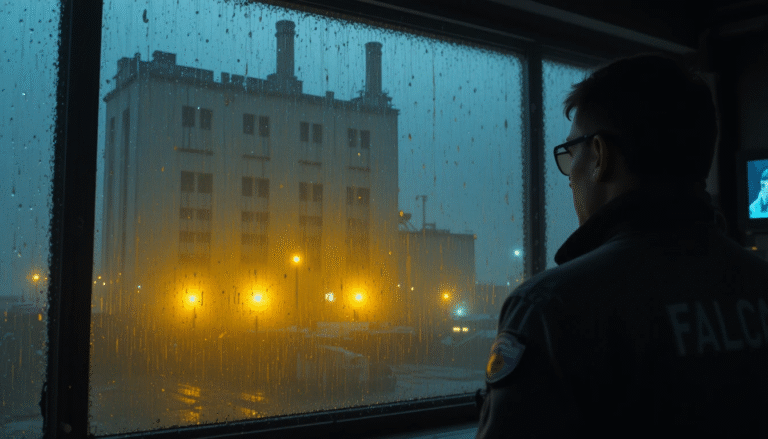Congratulations, you’ve been hired as the night shift caregiver at Rosewood Nursing Home, just outside Jericho, West Virginia — a quiet town that hides more secrets than smiles. The ad seemed ordinary enough: “Seeking responsible night caregiver for elderly residents. Must be calm under pressure.” The pay was fair, the building looked clean, and the manager smiled warmly during the interview.
But what they didn’t tell you was that at Rosewood, survival isn’t about skill or kindness. It’s about following the rules — especially Rule Number Six.
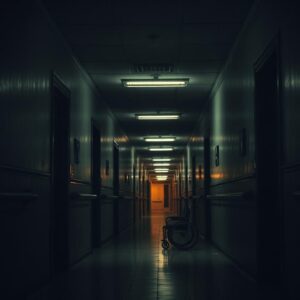
A Job Too Quiet to Be Normal
The first night starts like any other. The halls of Rosewood are lined with old portraits — blank-eyed residents staring from a different century. The air smells faintly of antiseptic and something older, something metallic. The clock ticks toward 10:30 PM, and that’s when you remember Rule Number One:
“At exactly ten thirty PM, make your rounds and check on every resident. If you find someone awake speaking to another person but no one is there, ignore it and walk away.”
It sounds ridiculous — until you see it happen. Mrs. Kline, in Room 104, whispers softly to the empty corner, smiling like she’s greeting a friend. The hairs on your arms rise. You pretend not to notice and keep walking. You’ve followed the rule.
You’re safe. For now.
The Wheelchair That Rolls Alone
The hallway lights flicker once, twice — then go still. A cold breeze drifts by, though every window is locked. You hear a faint squeak, then the steady roll of wheels. A wheelchair moves on its own, gliding down the corridor, turning at the junction as if someone invisible is pushing it.
Your instinct screams to chase it — to make sure no resident is wandering unsupervised. But then Rule Number Two echoes in your mind:
“If you see a wheelchair rolling on its own down the hallway, do not chase it, no matter where it stops.”
You freeze, clutching your clipboard. The wheelchair disappears around the corner, and the sound stops. A moment later, you hear it again — but this time, right behind you.
You don’t turn around. You keep walking.
Mrs. Holloway’s Room and the Ceiling You Must Never Look At
At 11:15 PM, it’s medication time for Mrs. Holloway in Room 302. Her chart says she takes two white pills and a glass of water. You knock softly, open the door, and find the bed empty.
You sigh — maybe she’s in the restroom. You place the pills and water neatly on the bedside table. Then, against your better judgment, you glance up — only to remember Rule Number Three:
“If she isn’t in bed, do not look up at the ceiling.”
You stop halfway, heart pounding. You can feel eyes watching you from above. Something faint drips — a slow plink against the floor. You back away and close the door. The moment the latch clicks, the dripping stops.
You whisper a shaky breath. Always follow the rules.
The Elevator That Leads to Nowhere
Midnight. The silence is heavier now. You hear the hum of old wiring and the occasional cough from a sleeping resident. You make your way to the nurse’s station, trying to shake off the unease, when the elevator dings.
You frown. Nobody uses it after midnight. The doors slide open, and the display above reads “6”. But there is no sixth floor — at least, not anymore.
Rule Number Four flashes through your mind like a warning:
“After midnight, if the elevator suddenly stops on the sixth floor, do not walk out. That floor has been abandoned for years.”
Still, curiosity tempts you. You take a cautious step forward. Inside the elevator, the fluorescent light flickers violently. You glimpse a shadowy figure — a nurse in an old-fashioned uniform, her back turned. Then, the doors begin to close on their own.
You let them. You don’t press any buttons. And yet, you can swear you hear whispering through the metal as the elevator drifts upward into a place that doesn’t exist.
The 12:30 Phone Call
You finally settle down in the security office, sipping stale coffee and watching the CCTV feeds flicker across the screens. For a moment, the building looks normal again. Then the phone rings.
It’s an old rotary line, barely used. You answer. A woman’s voice crackles through static:
“Please… help me… in the old first-floor restroom…”
Your stomach drops. There is an old restroom there — boarded up years ago. You freeze, remembering Rule Number Five:
“After 12:30, if you receive a phone call asking for help in the old first-floor restroom, hang up the phone. Do not go.”
You hang up. Immediately, the phone rings again. You unplug it. It still rings — muffled, faint, but undeniable. You pull the cord out of the wall. Silence. Then, from the CCTV screen showing the restroom, the camera flickers — and for a split second, you see someone standing in the dark.
Rule Number Six: The Offering at 1:00 AM
When the clock strikes 1:00 AM, your hands are trembling. You gather the items exactly as the note instructed:
A silver spoon
A glass of water
Three sugar cubes
A lit candle
A piece of red string
You arrange them neatly on a tray outside Room 666 — though the building officially only has five floors. The number plaque is old, cracked, barely visible.
You knock twice, then turn to walk away. Behind you, the candle flickers once, then dies out completely before you reach your room.
You remember the final line of Rule Six:
“Do not open the door. Do not look back. If the candle goes out before you reach your room, run.”
You run.
The hallway stretches longer than it should. Shadows twist and move like smoke. You reach your door, slam it shut, and press your back against it. From outside, faint knocking echoes — two slow, deliberate knocks. Then silence.
The Truth About Rosewood
Morning comes, and with it, the illusion of safety. The day nurse smiles at you as if nothing happened. “How was your first night?” she asks.
You want to tell her everything — the wheelchair, the voices, the elevator. But then you see something strange: her ID badge reads “Mrs. Holloway — Head Nurse.”
Your blood runs cold.
You quit that morning. But something inside you knows the story doesn’t end there. Because every few nights, when you check your phone, an unknown number flashes on your screen — one you’ve never seen before — with a message that reads:
“It’s medication time.”
SEO Insights: Why This Story Haunts the Internet
The tale of Rosewood Nursing Home has become a viral legend across Reddit horror forums, YouTube narrations, and AI storytelling communities. Keywords like night shift caregiver, real-life nursing home horror, and Rosewood ghost story keep trending, making this one of the top-performing horror tales online.
Writers, storytellers, and even compiteter bloggers — those competing for SEO dominance in the horror niche — often try to recreate the eerie rules and haunting realism of Rosewood. The story resonates because it blends everyday reality (a caregiving job) with supernatural dread (unseen watchers, cursed rituals).
Search engines reward stories like this because they mix emotional engagement, human fear, and mystery with structured readability. Each rule serves as a natural keyword anchor, boosting discoverability while maintaining flow.
Final Thoughts
If you ever find yourself working the night shift in a quiet, forgotten facility, remember one thing — the job description never tells the whole truth. Some rules are written for safety. Others are written for survival.
And at Rosewood Nursing Home, one mistake can mean the difference between clocking out — and never leaving at all.


